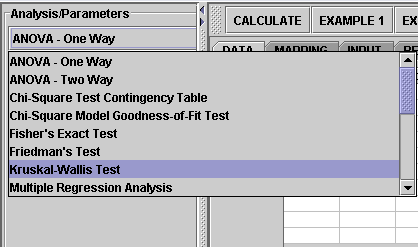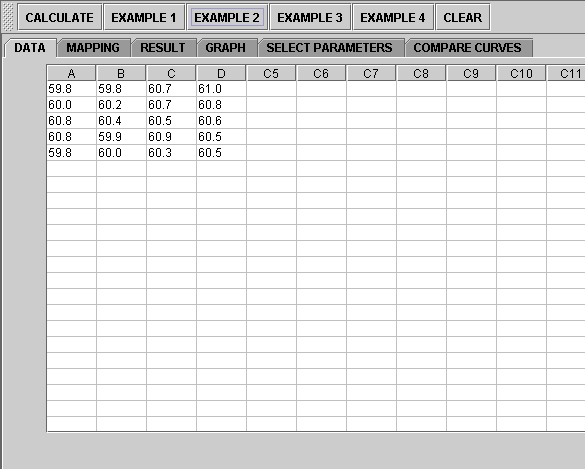Difference between revisions of "IvoDinov 2007"
| Line 1: | Line 1: | ||
=== Kruskal-Wallis Test Background=== | === Kruskal-Wallis Test Background=== | ||
| + | [[SOCR_EduMaterials_AnalysisActivities_KruskalWallis]] | ||
The Kruskal-Wallis Test is a generalization of the Two Independent Sample Wilcoxon Test. While the latter one test for two groups, the Kruskal-Wallis Test multiple groups. Suppose there are k groups, the hypotheses are written as: | The Kruskal-Wallis Test is a generalization of the Two Independent Sample Wilcoxon Test. While the latter one test for two groups, the Kruskal-Wallis Test multiple groups. Suppose there are k groups, the hypotheses are written as: | ||
Revision as of 18:03, 7 August 2007
Kruskal-Wallis Test Background
SOCR_EduMaterials_AnalysisActivities_KruskalWallis
The Kruskal-Wallis Test is a generalization of the Two Independent Sample Wilcoxon Test. While the latter one test for two groups, the Kruskal-Wallis Test multiple groups. Suppose there are k groups, the hypotheses are written as:
Null Hypothesis H_0: All of the k population distribution functions are identical.
Alternative Hypothesis H_A: At least one of the populations tends to yield larger observations than at least one of the other populations.
Rank sum is employed for hypothese testing. Note that the sample size for each group do hot have to be the same.
SOCR Analyses Example on the Kruskal-Wallis Test
The example we show here is from "Practical Nonparametric Statistics" by Conover, Second Edition, John Wiley & Sons, 1980. (Page 230)
Steps:
1. The data of this example has 4 groups: A, B, C and D. Click on "Two Independent Kruskal-Wallis Test" from the combo box in the left panel.


2. Click on "Example 2" button. than the "Data" button to see the data.

3. The data need to be send to the computer for analysis. In the Kruskal-Wallis test, at least two groups need to be included. You can certainly include any two groups, any three groups, or all the avaialble groups, etc., from the data set. The test will only analyze the groups selected. Therefore, you'll need to let the computer know what groups you're choosing. This is done in the "Mapping" panel. Click on the "Mapping" button to include the groups you want.

4. Next, click on the "Calculate" button. Now you're ready to see the results. Just click on the "Result" button.

Scroll down to see complete results.
If you'd like to include some other group(s) or remove the current groups and start over, simply go to the Mapping button and take the groups you want.
Note: if you happen to click on the "Clear" button in the middle of the procedure, all the data will be cleared out. Simply start over from step 1 and reteive the data by click an EXAMPLE button.
Translate this page: